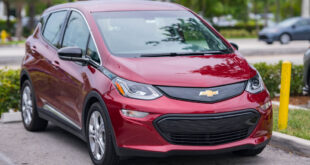Electric Car Cost Comparison: Real Value of EVs Electric vehicles (EVs) have become a game-changer in the automotive industry, promising reduced carbon emissions and significant savings in the long run. However, when it comes to affordability, the upfront costs often raise questions. This article provides a detailed electric car cost comparison, covering purchase price, running expenses, and long-term benefits, helping you make an informed decision.
The True Cost of Electric Cars
1. Purchase Price
Electric cars tend to have a higher initial price than traditional internal combustion engine (ICE) vehicles. For instance, the average cost of an EV ranges between $35,000 and $50,000, while traditional cars often start at $20,000. This difference can be attributed to the expensive battery technology and advanced systems used in EVs.
2. Tax Credits and Incentives
Governments worldwide offer tax breaks and rebates to make EVs more accessible. For example:
- USA: Up to $7,500 in federal tax credits.
- EU Countries: Various grants covering 20-35% of the purchase price.
These incentives significantly reduce the effective cost of owning an electric car.
3. Fuel Costs: Electricity vs. Gasoline
EVs are much cheaper to “fuel.” The average cost to charge an EV is approximately $0.12 per kWh, which translates to $500 annually. Comparatively, gas-powered vehicles may require $1,200–$2,000 annually depending on fuel prices.
4. Maintenance Costs
Electric vehicles have fewer moving parts, meaning lower maintenance expenses. No oil changes, fewer brake repairs, and simplified cooling systems save owners hundreds of dollars yearly. Over five years, an EV might save $1,500–$3,000 in maintenance costs compared to a gasoline car.
5. Battery Longevity and Replacement Costs
While EV batteries are designed to last 8–15 years, replacement costs can be high, ranging from $5,000 to $20,000. However, advancements in battery technology continue to drive these costs down.
Comparing Electric Cars and Gasoline Cars
Cost Over Five Years
| Category | Electric Car | Gasoline Car |
|---|---|---|
| Initial Purchase | $40,000 | $25,000 |
| Fuel (per year) | $500 | $1,500 |
| Maintenance (5 yrs) | $1,000 | $3,500 |
| Tax Credits | -$7,500 | None |
| Total | $39,000 | $42,500 |
Environmental Benefits
EVs significantly reduce greenhouse gas emissions. Charging from renewable energy sources further minimizes their carbon footprint.
10 Tips to Save on Electric Car Ownership
- Leverage Government Incentives: Always check for local tax credits and rebates.
- Choose the Right Model: Opt for a vehicle with the range and features you need.
- Charge at Home: Install a Level 2 charger to reduce charging time and costs.
- Use Off-Peak Charging: Schedule charging during low electricity demand hours for cheaper rates.
- Maintain Proper Battery Care: Avoid extreme temperatures and overcharging.
- Shop for Deals: Look for discounts or end-of-year sales on EVs.
- Purchase Used EVs: Consider certified pre-owned models for lower costs.
- Bundle Insurance: Many insurers offer discounts for EVs.
- Monitor Driving Habits: Smooth driving conserves battery life.
- Take Advantage of Free Charging Stations: Many public spaces provide free or subsidized charging.
10 FAQs About Electric Car Costs
- Are electric cars more expensive than gas cars?
Initially, yes, but lower running costs and incentives can make them cheaper over time. - How much does it cost to charge an electric car?
On average, it costs $0.12 per kWh, equating to $500 annually for most users. - What are the maintenance expenses for EVs?
EV maintenance costs are significantly lower, averaging $200–$400 annually. - How long do EV batteries last?
Most EV batteries last 8–15 years or 100,000–200,000 miles. - Is it worth buying a used electric car?
Yes, if the battery is in good condition and depreciation is factored in. - Do electric cars depreciate faster?
EVs initially depreciate faster but stabilize as demand increases. - Can I charge my EV at home?
Yes, home charging is convenient and cost-effective with the right setup. - What’s the cheapest electric car available?
Models like the Nissan Leaf and Chevy Bolt start around $25,000. - How do electricity costs compare with gas prices?
Charging an EV is generally 3–5 times cheaper than fueling a gasoline car. - Are there hidden costs to owning an EV?
Expenses like home charger installation and potential battery replacement should be considered.
Conclusion
Switching to an electric car requires a comprehensive understanding of both initial and long-term costs. Although the upfront investment is higher, EVs offer substantial savings through lower fuel and maintenance expenses, coupled with government incentives.
In the coming years, as battery technology evolves and charging infrastructure expands, the cost gap between EVs and gasoline cars will continue to narrow. For those ready to embrace sustainability and cost efficiency, investing in an electric car is not just a financial decision—it’s a commitment to a greener future.
 oto car insurance used car repair
oto car insurance used car repair
